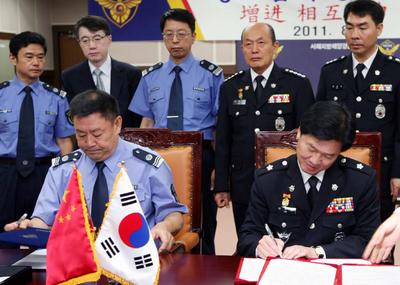The adoption of the guidelines will help to reduce tensions and promote confidence-building among all claimants. More specifically, the guidelines will facilitate cooperation between China and ASEAN countries. This will serve the interest of all parties in a pragmatic manner.
China’s acceptance of the guidelines proposed by ASEAN marks a significant change of approach without fundamentally altering Beijing’s South China Sea policy.
To implement the DOC, China and ASEAN countries are pledging to carry out a series of cooperative projects pending the final settlement of the boundary dispute. While claimant countries are increasing their search for energy to fuel their domestic economic growth, the joint development of oil and gas will help to reduce the pressure and achieve mutual benefits.
In the meantime, China will also have a role to play by offering funding and technology to explore oil and gas in the deep sea. China can also take initiatives to cooperate in the areas of marine environmental protection, scientific research, navigation safety, search and rescue, as well as the combating of transnational crimes.
But as the guidelines still lack concrete measures, both ASEAN and China need to consider specifying the details when it comes to actual negotiation. This could include measures on information sharing, project coordination, burden sharing and crisis management.
By conducting cooperative activities and promoting confidence building, China demonstrates its desire to manage the dispute with ASEAN countries without the involvement of external powers. China’s Assistant Foreign Minister Liu Zhenmin also stated that the endorsement of the guidelines should signal to the world that ‘the future of the South China Sea is a predictable, manageable and optimistic one’.
This year US Secretary of State Hillary Clinton also hailed the process, describing it as ‘an important first step toward achieving a Code of Conduct’ — a contrast to last year’s thorny remarks at the ARF meeting in Vietnam. She recognised that progress ‘can be made through dialogue and multilateral diplomacy’.
The uninterrupted flow of shipping is critical to the survival and prosperity of East Asian countries. And, at the ARF, China showed concern over freedom of navigation in the South China Sea, with Chinese officials proposing to host a workshop on the topic. China is heavily reliant on maritime economic trade and more than 80 per cent of its oil import passes through the South China Sea every year.
It is clear from China’s agreement to adopt the guidelines on the DOC that Beijing values its relationship with ASEAN. The substantial trade and economic ties between China and ASEAN should be considered one of the constructive factors with which to guide the overall relationship. With the full implementation of the China-ASEAN free trade agreement (CAFTA), the value of bilateral trade in the first six months of this year has reached US$171 billion — one tenth of China’s total during this period.
It is in the interest of both the ASEAN countries and China to exercise stronger political will and take a more pragmatic stance to prevent maritime boundary disputes from jeopardising their mutual economic interests.
Yang Fang is an Associate Research Fellow with the Maritime Security Programme at the S Rajaratnam School of International Studies (RSIS), Nanyang Technological University.
A version of this article originally appeared here as RSIS Commentary No 116/2011.

